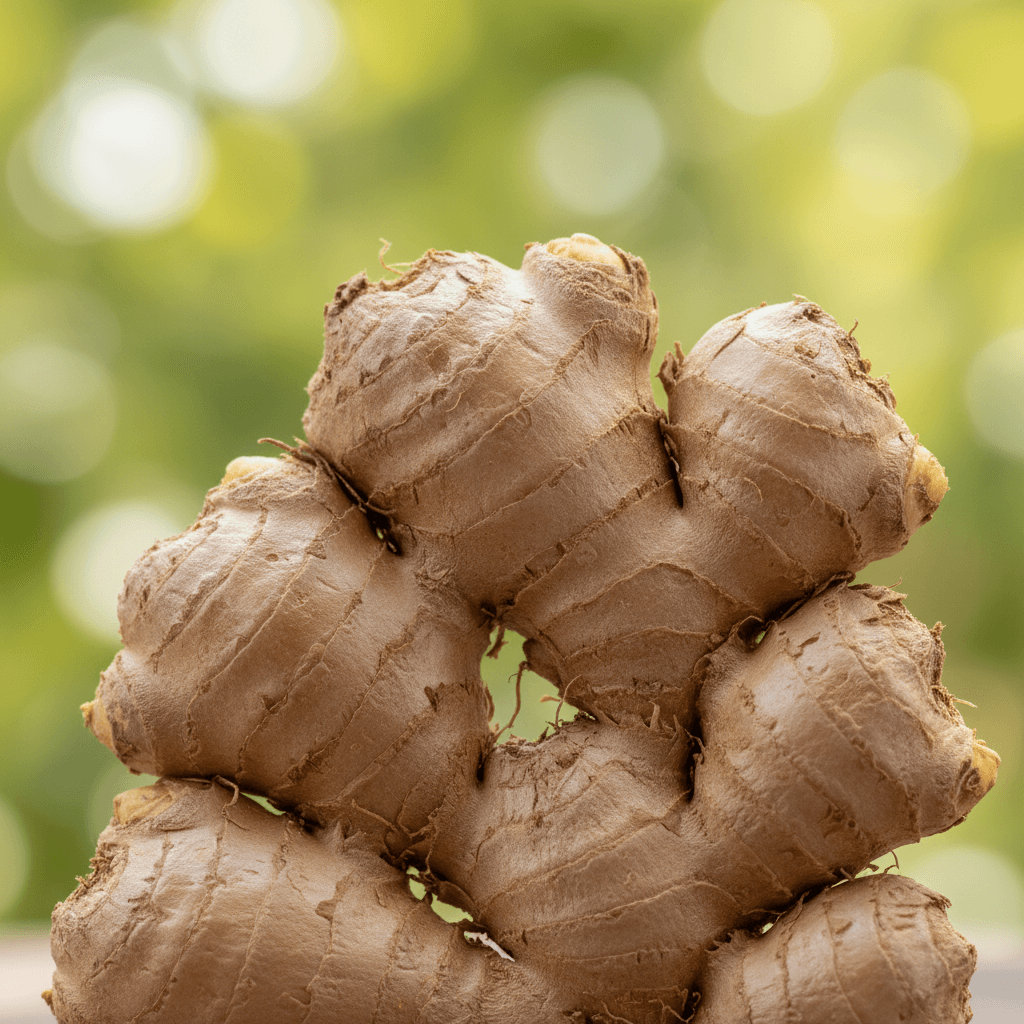Ginger Root
Zingiber Officinale

Herbs

Ginger Root
- Carminative
- Anti-inflammatory
- Antioxidant
- Antispasmodic
- Root
- Spicy
- Warming
- Slightly sweet
- Warming
- Stimulating
- Digestive health
- Nausea relief
- Inflammatory conditions
- Circulatory support
Ginger Root, a widely used and celebrated herb, originates from Southeast Asia and has become a staple in culinary and medicinal practices worldwide. Known for its pungent and spicy flavor, Ginger has a long history of use in various traditional medicine systems, including Ayurveda and Traditional Chinese Medicine (TCM).
Digestive Health: Ginger is a potent carminative, which helps reduce bloating, ease stomach discomfort, and promote healthy digestion. It is commonly used to soothe the digestive tract, stimulate saliva flow, and aid in the digestion of fats.
Nausea Relief: One of Ginger’s most renowned uses is its ability to alleviate nausea and vomiting. It is especially effective for motion sickness, pregnancy-related nausea, and side effects from medical treatments like chemotherapy.
Inflammatory Conditions: Due to its strong anti-inflammatory properties, Ginger is used to reduce pain and swelling associated with arthritis, muscle soreness, and other inflammatory conditions. It inhibits inflammatory compounds and has analgesic properties similar to those of nonsteroidal anti-inflammatory drugs (NSAIDs).
Circulatory Support: Ginger also supports circulatory health by improving blood flow and lowering blood pressure. It is often recommended to warm the body and enhance circulation, particularly in colder climates or for individuals with poor circulation.
In addition to its health applications, Ginger holds cultural significance in many societies, often used in festive and spiritual practices to promote health and vitality.
Incorporating Ginger Root into your daily routine can significantly benefit your digestive and overall health, making it an indispensable herb in both the kitchen and medicine cabinet.

